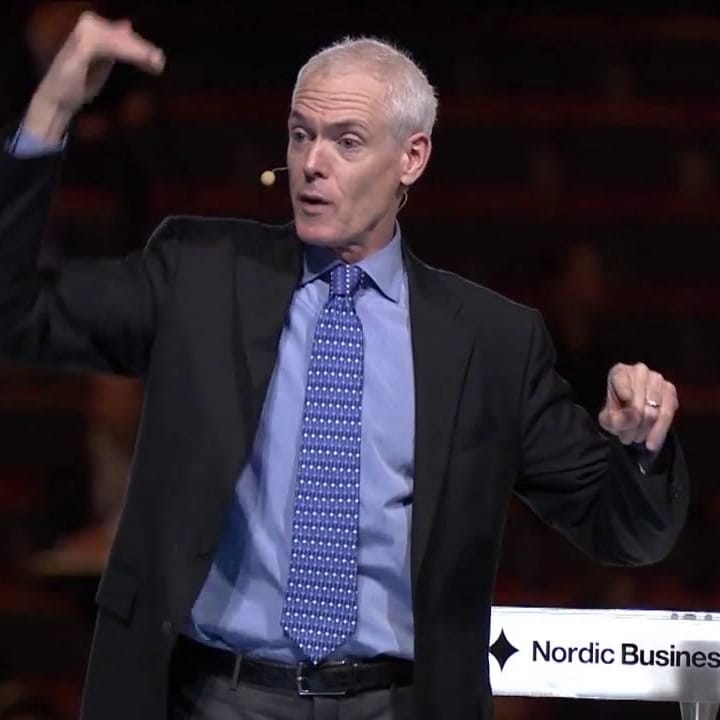The Conversation That Stopped Me in My Tracks
The other day, I was talking with a friend—one of those conversations where you keep blinking, wondering if you're actually hearing the words coming out of their mouth. He was explaining, with great confidence, that sociopaths and narcissists make the best leaders because they don't get bogged down by things like emotions or, you know, human decency. “They get the job done,” he said, as if this was the kind of wisdom you'd slap on a motivational poster—right above a stock photo of a bald eagle soaring over a mountain range.
I sat there, trying not to choke on my coffee, thinking about all the times I've seen bullies “get the job done.” Parents who ruled their kids with fear. Bosses who led by intimidation. Politicians who won by division. Sure, they got results—compliance, obedience, maybe even power. But at what cost? The wreckage always follows. Maybe not right away, but eventually.
And the thing that really got me wasn't just this one conversation—it was how many people I've heard say something similar. When did we start equating arrogance with strength? Manipulation with strategy? Hubris with leadership? Somewhere along the way, we decided that the loudest person in the room must be the smartest, that cruelty is necessary “toughness,” and that humility is for people who don't have what it takes to win.
When did we lose sight of the fact that real leadership—the kind that builds something worth keeping—isn't about dominance? It's about character. It's about giving credit instead of hoarding it, taking responsibility instead of shifting blame, listening instead of shouting, and choosing humility over ego.
The more I thought about it, the more I wondered: If humility is so essential to good leadership, why do we so often overlook it? This question sent me back to the research, back to the ancient wisdom that has long upheld humility—not power plays or self-promotion—as the foundation of truly successful leadership. And not just in boardrooms, but in homes, in communities, and in the way we show up for each other every day.
The deeper I dug, the clearer it became: humility isn't just a virtue to admire—it's a necessity for anyone who wants to lead well, love well, and live well.
The Power of Humility: A Path to Living Love Well
There's a reason we admire the leader who takes responsibility instead of shifting blame. The friend who truly listens instead of waiting for their turn to talk. The partner who considers, “Could they be right?” instead of digging in their heels.
Humility isn't weakness—it's wisdom.
It's a quiet strength that has built great civilizations, sustained deep relationships, and fueled personal transformation. And yet, in a culture that celebrates confidence, quick wins, and relentless self-promotion, humility is often mistaken for passivity.
But what if humility is actually the gold we've been overlooking—the very thing that strengthens leadership, deepens love, and opens the door to a more meaningful life?
The Research: Why Humility is a Game-Changer
Jim Collins, in Good to Great, studied companies that made the leap from mediocrity to lasting success. The common thread among the best leaders? Humility.
These Level 5 Leaders weren't obsessed with their own status. They gave credit to others, took responsibility when things went wrong, and made decisions that served the greater good—not just their own ego. This kind of leadership doesn't just transform workplaces; it transforms homes, communities, and entire cultures.
But humility isn't just a corporate strategy—it's a relational superpower. Dr. John Gottman's research on marriage reveals that one of the most significant predictors of a strong relationship is the ability to take influence from one's partner. When one person insists on being right, the relationship fractures. But when both partners soften—when they say, “You might be right” or “Help me see what you see”—the dynamic shifts. Love deepens. Trust grows. The relationship becomes something greater than the sum of its parts.
And this wisdom isn't new. Across centuries and cultures, humility has been recognized as the foundation of true strength. “All streams flow to the sea because it is lower than they are. Humility gives it its power,” teaches the Tao Te Ching, revealing that true leadership is found not in self-exaltation but in service.
The Hebrew proverbs echo this paradox: “Arrogance comes, then comes shame, but wisdom remains with humble people.” And the Bhagavad Gita affirms, “A person who is free from arrogance and egotism, who remains steady in both success and failure, is truly wise.”
Humility isn't about thinking less of ourselves—it's about thinking of ourselves less. It is about making space for wisdom, for love, for something greater than ego. It is the quiet force that lifts others, sustains what is good, and endures long after arrogance has crumbled.
Heȟáka Sápa commonly known as Black Elk of the Oglala Lakota people put it this way, “Humility is the foundation of all virtues. It is by being humble that the spirit stays strong.”
So why do we resist it? Because humility requires surrender. It asks us to let go of the illusion of control, to admit we don't have all the answers, and to prioritize connection over being right. But the reward? Stronger relationships, deeper wisdom, and a life built on something more lasting than ego.
Living Humility: Three Ways to Practice Today
At Home: Take Influence from Others
Whether in marriage, family life, or close friendships, make a habit of asking, “What if they see something I don't?” Instead of reacting defensively, pause and consider their perspective. Relationships thrive not when one person dominates, but when both feel heard and valued.In Leadership: Give Credit and Own Mistakes
Whether you lead a team, a family, or a community, practice what Jim Collins calls “looking out the window and in the mirror.” When things go well, look out the window—give credit to those around you. When things go wrong, look in the mirror—take responsibility. People follow leaders who don't just demand respect but give it freely.In Spiritual Growth: Embrace 'I Don't Know'
Humility creates space for transformation. Whatever your spiritual practice, try shifting from certainty to curiosity. Instead of resisting new ideas or perspectives, ask, “What if there's more to this than I've seen before?” Openness is the doorway to wisdom.
Humility Does Not Mean Making Yourself Small
True humility isn't about making yourself small—it's about opening yourself up.
It's about creating room for wisdom, allowing love to lead, and letting connection take priority over control. The best relationships, the most impactful leaders, and the most meaningful lives are shaped not by ego, but by the quiet strength of humility.
What's one moment today where you can choose humility?
Until next week,
Jonathan Penner | Founder & Exec Dir. of LifeApp


Resources To Dig Deeper

Book
Good To Great: Why Some Companies Make the Leap...And Others Don't
Lessons on eggs, flywheels, hedgehogs, buses, and other essentials of business that can help you transform your company.
-Jim Collins

Podcast
Humble Leaders Lead Better Teams with Retired Navy SEAL Jocko Willink
A Bit of Optimism Podcast - Jocko Willink believes the secret to his greatest achievements comes down to one thing – humility. A retired Navy SEAL commander, Jocko served 20 years in the U.S. military, leading one of the most decorated special operations units through combat in the Iraq War.
-Simon Sinek, A Bit of Optimism Podcast (44:22)

Article
Level 5 Leadership: The Triumph of Humility and Fierce Resolve
What catapults a company from merely good to truly great? A five-year research project searched for the answer to that question, and its discoveries ought to change the way we think about leadership. The most powerfully transformative executives possess a paradoxical mixture of personal humility and professional will. They are timid and ferocious. Shy and fearless. They are rare—and unstoppable.
-Jim Collins

Video
The X Factor of Truly Great Leadership
Jim Collins is a student and teacher of leadership and what makes great companies tick. He has authored or co-authored six books that have sold in total more than ten million copies worldwide, including “Built to Last”, “Good to Great” and “How The Mighty Fall”.
-Jim Collins (3:41)

Video
The Shocking Secret for MEN to Keeping Love Alive Forever
Learn the power of respect, affection, and connection, and why actively listening, understanding, and accepting influence from your partner (being humble) are the keys to staying in love forever. (Backed by Science!)
-Dr John Gottman (2:07)

Video
Lead With Humility
The founder of The Optimism Company breaks down the essence of true leadership in this compelling talk about leading with humility and an infinite mindset.
-Simon Sinek (2:28)
Learn More About
"I found it very valuable. I learned more about myself and worked through more issues in my life than I have seeking counselling. It changed my life for the best!"

